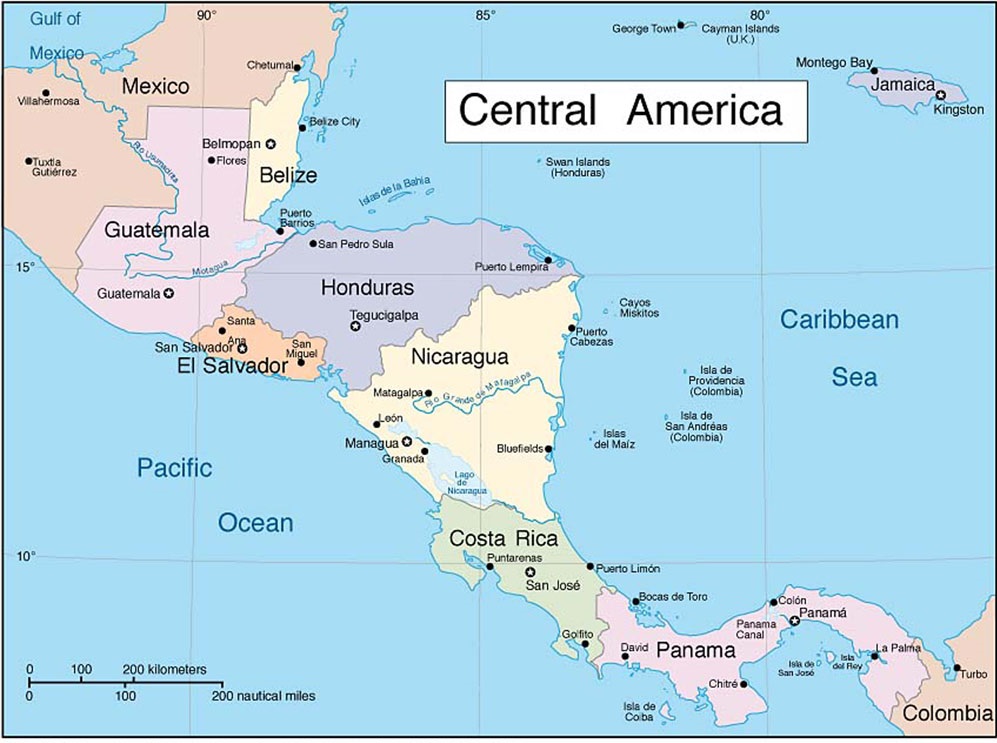On Monday, Central American governments meeting in Guatemala reached a solution for the U.S.-bound Cubans stranded in Costa Rica because of Nicaragua's refusal to let them through. After several previous failed attempts, officials from Panama, El Salvador, Guatemala, Honduras, Belize, Mexico, Costa Rica, and the International Organization for Migration finally reached a consensus. The United States was not present at the meeting.
The officials agreed to allow the roughly 8,000 U.S.-bound Cuban migrants to continue north towards the United States, where they will automatically be allowed to remain. The islanders will be flown to El Salvador to skip over Nicaragua's roadblock. (Guatemala had earlier rejected a proposal to fly them directly there.) Once they arrive to El Salvador, they will go through Guatemala and head to Mexico, via buses.

The Central American countries agreed to start the transfer of Cuban migrants on the first week of January; Guatemala's Foreign Minister Carlos Raul Morales said approximately 250 Cuban migrants will initially be flown to El Salvador. According to the Ministry's press office, the Cuban migrants will be responsible for the costs of airplane and bus tickets. A working group responsible for coordinating logistics for the first transfer has been formed. Mexico noted that this initial exercise will be reviewed in subsequent technical meetings, and is subject to revision.
Costa Rica's Foreign Minister Manuel Gonzalez reiterated that Costa Rica does not have the capacity to receive and give temporary visas to any more people. (Previously, Cuban migrants arriving overland from Panama had simply been issued transit visas and sent on their way.) As such, only those Cuban migrants already in Costa Rica will be eligible for the transfer. In other words this exercise is an exception, and should not be seen as a precedent in the region. Costa Rica has started the deportation process for 56 Cubans who entered the country after it suspended the granting of temporary visas – and who are, therefore, illegal aliens. Ultimately, the Central American countries reaffirmed their "commitment to fight against human trafficking networks, ensuring that they apply without delay the law that severely penalize this illegal activity and unfortunately obliges countries of the region, to return to their country of origin anyone who enters its territory in an unauthorized manner."
The United States should be concerned by the results of Monday's meeting, given its current immigration policy towards Cuba. The transfer places the islanders in a prime position to take advantage of the Cuban Adjustment Act and the "wet foot, dry-foot" policy that stems from it. According to that policy, Cubans who set foot on U.S. soil are automatically granted status, while those captured at sea are repatriated. However, the Cuban Adjustment Act is repeatedly and systematically abused, and it should be repealed. Even Guatemala's foreign ministry has said that these "people are not political refugees, they have not been affected by war or natural disasters," and migrate to the U.S. for the same reasons as Guatemalans – economic improvement or family unification.
Unfortunately, Secretary of State John Kerry has made clear that the Obama administration has "no plans whatsoever to alter the current migration policy, including the Cuban Adjustment Act, and ... no plans to change the 'wet foot, dry foot' policy".
